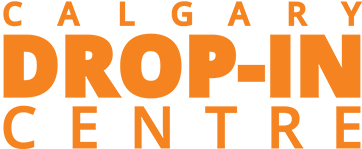Responding to the Opioid Crisis
Frequently Asked Questions
What are recovery-oriented services?
Recovery-oriented services are targeted supports and services to address mental health and addictions issues. This includes withdrawal management (commonly known as detox), overdose prevention services, referrals to residential or outpatient treatment programs, community outreach services, and several other programs.
What is an overdose prevention site?
A temporary service that provides a safe place for people to use pre-obtained illicit drugs while being monitored by trained employees. Employees are available to respond to people in medical distress and connect people to recovery-oriented treatment options.
What’s the difference between overdose prevention services and supervised consumption services?
Overdose prevention services and supervised consumption services are two distinct harm reduction services.
While both of these services provide a safe place for people to use pre-obtained illicit drugs while being monitored by trained employees, these are distinct services. Overdose prevention services are intended to be temporary sites that are regulated by the provincial government. Supervised consumption services are intended to be permanent and are regulated by the federal government.
The DI is exploring overdose prevention services alongside other wrap around supports, including community outreach support and harm reduction education, to save lives and improve community safety.
Why would the DI offer overdose prevention services onsite?
We are faced with an opioid crisis at our shelter and surrounding communities, which is having a severe impact for those suffering directly and for the frontline staff who have provided the necessary emergency services throughout the crisis.
These overdose prevention services are desperately needed on site as the DI is responding to an unprecedented amount of drug poisoning events every day.
In 2018, the DI responded to six drug poisonings per month. This year, that number has grown to an average of nearly 125 drug poisonings per month, that’s about 4.25 drug poisonings per day.
Why does the DI want to make this change?
The DI was approached by the Government of Alberta to consider offering recovery-oriented services. We recognized the benefit this could provide those we serve and wanted explore the potential of a full continuum of services such as overdose prevention, withdrawal management, recovery and transitional beds, harm reduction education, and community outreach support.
Would this be a public overdose prevention site?
No. If approved, these services will be intended for those accessing DI services.
Where is the DI at in the process?
As of July, we are in the community consultation phase.
How is the DI getting funding for overdose prevention services?
The DI is working with Alberta Health and Alberta Health Services to provide an overdose prevention services and other recovery-oriented services to our clients.
How would this affect my neighbourhood?
These supports will be a small but important piece in improving community safety by addressing the mental health and addictions challenges many of us see on our streets every day. We will also be employing a community outreach team that will collaborate with other existing services to contribute to community safety.
How would this be different than the supervised consumption at Sheldon Chumir?
The existing supervised consumption services at the Sheldon Chumir will be different than the recovery-oriented services being explored by the DI. The DI will not be a supervised consumption site and it will be for DI clients only.
The recovery-oriented system of care being explored by the DI will have co-located programming that will allow for seamless transitions between internally offered programs such as emergency shelter, withdrawal management, recovery/transitional beds, housing and health services.
How will neighbours’ concerns be addressed?
Two of our most important values are Accountability, meaning we operate with transparency and integrity, and Community, meaning we work to build inclusive communities through collaborative partnerships. We will embrace these values as we listen to the community, and will also be working with community groups and associations on Good Neighbour Agreements to provide a clear system of communication if concerns are raised by our neighbours.
What if I have more questions or feedback?
Please fill out the following survey form below or contact us at CommunityFeedback@thedi.ca. We will work to respond to your question, through this FAQ page or in direct response. Your feedback will better inform us on how to improve these services prior to the gradual introduction over the next six to nine months.




